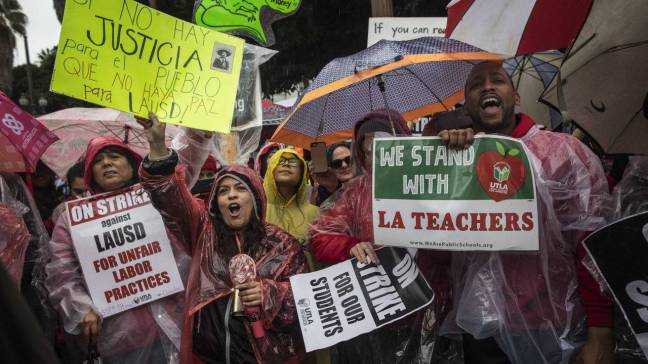Lessons Learned from the Los Angeles Teachers’ Strike
As a Los Angeles Unified School District teacher for the past 26 years, I was hoping to complete my career without ever going on strike. Nevertheless, I joined the 98% of United Teachers Los Angeles members who voted late last year to authorize a strike because I wanted to force the district into serious, substantive negotiations. Unfortunately, the new LAUSD superintendent didn’t blink.
How a hedge fund billionaire, whose expertise is dismantling corporations and who has never been a classroom teacher, could become the head of the second largest school district in the country isn’t surprising given the credentials of our current U.S. Secretary of Education. Clearly, teachers have lost control of the education conversation in this country.
But we just may be getting our voices back and, in the process, winning back the hearts and minds of parents and the public.

After six days of picketing in the pouring rain (a big deal for Angelenos), a loss of seven days’ pay with the MLK holiday (which amounts to approximately 3.5% of a teachers’ annual salary—and, no, striking teachers don’t receive back pay; the cost comes directly out of their pockets or any raise they may get), the hit to each member’s retirement service credit (an often-overlooked but potentially costly loss), and daily rallies at City Hall that reached 65,000 protesters (the 30,000 striking educators enjoyed massive CONTINUE READING: Lessons Learned from the Los Angeles Teachers’ Strike – Robert Ward's "Rewarding Education" Blog for Teachers and Parents

